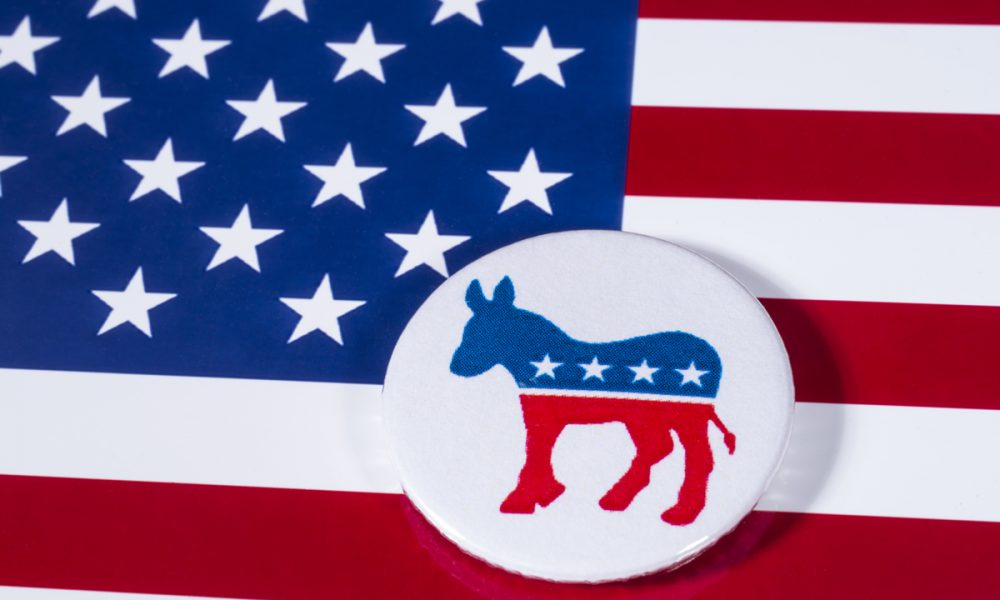Democrats must begin 2024 congressional campaign today
December 21, 2022 12:00 am
Last Tuesday, President Biden signed into law the Respect for Marriage Act, protecting marriage equality in the U.S. But the same day, his administration went to bat for Saudi Arabia, one of the most violently homophobic countries on Earth.
Under Saudi law, “consensual same-sex sexual conduct is punishable by death or flogging,” reports the U.S. State Department.
While we celebrate the Biden administration as a champion for LGBTQI+ rights domestically, how can we allow support in our name for regimes around the world that kill members of our community? How can we turn a blind eye to Saudi Arabia’s oppression of women rights activists, journalists, and their neighbors in Yemen, who they have bombed and blockaded into starvation?
I asked State Department spokesperson Ned Price just that at the Victory Institute LGBTQ Leaders Conference closing panel in Washington earlier this month. Mr. Price, a fellow gay man, has been rightfully celebrated for his role in the administration, but the LGBTQI+ community has been largely silent on the policies he and others end up promoting within their positions — and on the Biden administration’s diplomacy in general.
How can Mr. Price defend the U.S. alliance with Saudi Arabia, a dictatorship that kills gay people like him, violates women’s rights, and starves children in Yemen? He responded that the U.S. should preserve its relationship with Saudi Arabia to influence its behavior.
“When we do have that engagement…” Mr. Price said, “We can push the kingdom — try to push the kingdom — and its decision makers, in a more constructive route, when it comes to human rights…”
There’s a term for what Mr. Price described: Constructive engagement. Developed by the Reagan administration as an excuse for continuing to support apartheid South Africa, constructive engagement is a policy that is morally abhorrent and that also failed to achieve its purported aims. Through quiet conversations with white South African apartheid regime leaders, the U.S. told the international community that the country could change.
Of course, it did not work, and few actually believed it would work at the time. It actually prolonged apartheid and resulted in the loss of human lives. What did end apartheid in South Africa was a global grassroots movement, solidarity with our Black siblings in South Africa, and strong civil society campaigns that forced a formerly recalcitrant Congress to overturn Reagan’s veto of a bill that held the apartheid regime accountable.
Indeed, the administration’s cozy approach toward Saudi Arabia stands in stark contrast to its rhetoric regarding other countries with homophobic laws. Just last week, for example, Mr. Price strongly criticized Russia’s recent crackdown on LGBTQI+ rights, as the Washington Blade reported. I have yet to hear Mr. Price critique Saudi Arabia’s violence against our community with similar vehemence. It appears that the State Department talks about human rights — or doesn’t talk about them — at least partially in service of its geopolitical aims, with a decision to prioritize those over human rights.
Saudi Arabia’s horrific treatment of marginalized groups extends past its own borders and our LGBTQI+ community. Yemeni communities, women’s rights activists and journalists have long been subject to horrendous abuses by the dictatorship. In Yemen, the Saudi-led coalition, with U.S. support, is responsible for indiscriminate attacks on civilian populations and a blockade that limits fuel, medical supplies and other essential good to people suffering through a humanitarian crisis. Instead of seeking accountability for Saudi Arabia, the Biden administration successfully pressed Sen. Bernie Sanders to withdraw his bill to end U.S. military support for the Saudi-led intervention.
Amnesty International recently reported an increase in Saudi Arabia’s use of a counterterrorism law to prosecute activists, as in the case of Salma al-Shehab. Ms. al-Shehab’s crime consisted of using Twitter and retweeting activists supportive of women’s rights. A Saudi court upped her prison sentence from 6 to 34 years, apparently to make an example of her.
Experts agree that Saudi dictator Mohammed bin Salman directly ordered the murder of Jamal Khashoggi of the Washington Post. On the campaign trail, Biden promised to hold bin Salman accountable, and make Saudi Arabia a “pariah state.” But he has since broken that promise, shamefully granting immunity to bin Salman over a lawsuit regarding Khashoggi’s murder.
“It’s beyond ironic that President Biden has single-handedly assured [bin Salman] can escape accountability when it was President Biden who promised the American people he would do everything to hold him accountable,” tweeted Sarah Leah Whitson, the executive director of Democracy for the Arab World Now, a plaintiff in the lawsuit. “Not even the Trump administration did this.”
But back to Biden’s State Department spokesperson, Mr. Price. In response to my Dec. 3 question, he described the Trump administration’s engagement with Saudi Arabia as a “blank check” and “total bear hug,” suggesting the Biden administration was pursuing a different tack.
At that moment, no longer in possession of a mic, I raised my voice to be heard, “So, fist pumps, not bear hugs?”
To this, the moderator chided, “This conference is not about Saudi Arabia.”
Talking about the rights of our siblings around the world is exactly what an international conference for LGBTQI+ leaders should be about. Representation of our community matters — but policies do, too. What is the point of representation if members of our community end up promoting relationships with the very governments that kill us? When we look at what changed the apartheid system in South Africa, it was not the Reagan administration’s backroom conversations with the racist, white elites who ruled the country and set up the apartheid regime. It was the massive, global, grassroots mobilization of people around the world who organized for justice in the face of appalling injustice.
It is with this spirit that our community must confront the injustices in Saudi Arabia. We need to listen to what our sisters, brothers — siblings — around the world want and need, people whose lives might be at risk because of our silence. Following their lead, we must hold our leaders accountable — to our community, to their own words and to those around the world asking for our help.
Isaac Evans-Frantz is the executive director of Action Corps, an advisory board member of Freedom Forward, and co-leader of a national coalition to stop the Saudi blockade of Yemen.
Categorised in: News, Washington Blade
